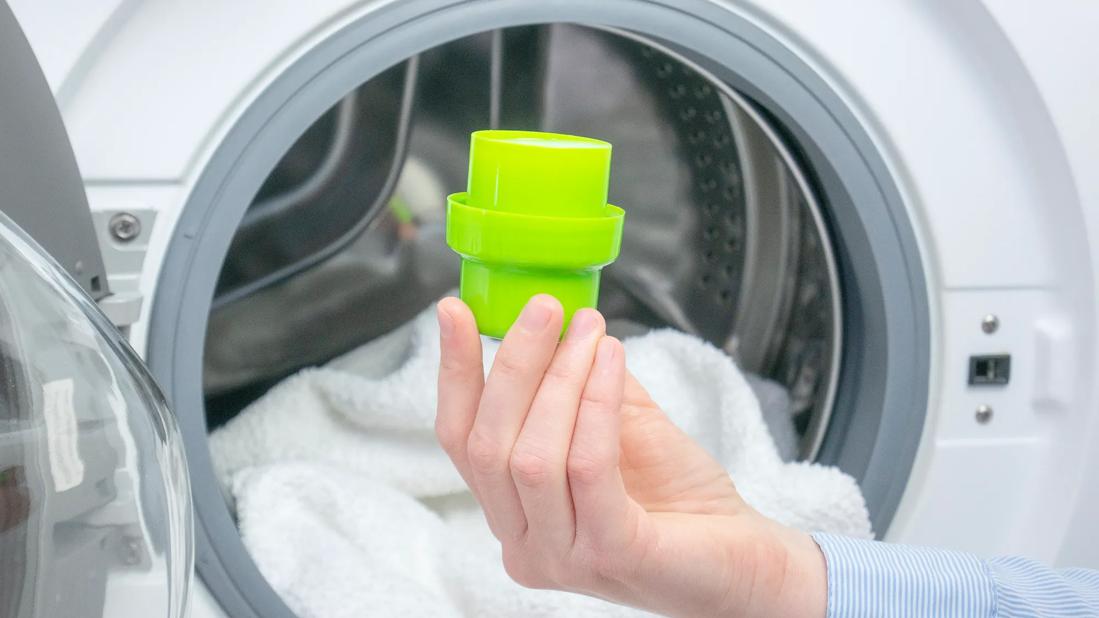You may notice itching, redness and swelling after wearing or using laundered items

Putting on a warm, clean sweatshirt straight out of the dryer is one of life’s small luxuries. But if you notice some not-so-satisfying symptoms like itchy skin, redness or even a rash, your laundry detergent may be the culprit.
Advertisement
Cleveland Clinic is a non-profit academic medical center. Advertising on our site helps support our mission. We do not endorse non-Cleveland Clinic products or services. Policy
A laundry detergent allergy is when your skin reacts poorly to laundry detergent or residue left on your clothes and linens. It commonly triggers allergic contact dermatitis. Contact dermatitis can worsen existing skin conditions like atopic dermatitis (eczema).
It can be tricky to pin down an allergy to laundry detergent. That’s because it can often look like a reaction to other things, like poison ivy and topical medications.
But the key difference is that you notice symptoms after you use something that’s freshly washed and dried, says pediatric dermatologist Joan Tamburro, DO.
You may notice symptoms on your skin like:
The reason you may have a bad reaction to laundry detergent is largely due to the ingredients used to make the products. This means you’re either allergic to one or more of the chemicals in these products, or they’re somehow triggering an existing skin condition.
Advertisement
Ingredients and additives that may cause a laundry detergent allergy include:
There are a couple of ways you can check if your laundry detergent causes your symptoms.
You’ll need to do some detective work. Look to see if your symptoms occur after wearing freshly laundered clothes, using bath towels or sleeping on clean sheets. Keep in mind that the rash will usually show up on parts of your body where clothing is tight or in constant contact, such as your underarms, neck and waist.
And while you may notice symptoms after just a few hours, Dr. Tamburro says it can also take up to 10 days after an allergen exposure for symptoms to appear.
You should seek medical attention if:
Try switching to a hypoallergenic detergent that’s fragrance-free and dye-free for at least three to four weeks.
Rewash everything (clothes, sheets, towels) with the new detergent to remove residue from the previous one. Double rinsing may help, due to detergents remaining on clothing even after rewashing in new detergent. Then, keep an eye on your symptoms or lack of. If your skin improves, it’s likely your original detergent was causing the problem.
If you’re worried about having an allergic reaction to a specific detergent, you can do a small patch test on yourself.
First, dilute the detergent by mixing a small amount of the detergent with water (about a 1:1 ratio). Then, dab a small amount onto a patch of your skin, like on your inner arm or wrist. Cover with a bandage for 24 to 48 hours.
Advertisement
If redness, itching or swelling appears, it’s a strong indicator of a sensitivity to that detergent. However, a dermatologist will do the best job of identifying if you’re reacting to specific ingredients or not.
You can ask a dermatologist to perform a professional allergy patch test to identify the specific ingredient causing the reaction.
Adhesive patches containing a small amount of detergent (or its components) will be applied to your skin and monitored over 48 to 72 hours. This will provide more accurate results.
If you’ve already been in contact with an allergen and notice symptoms, Dr. Tamburro suggests doing the following:
Washing your clothes, towels and sheets isn’t something you’ll be skipping. But there are ways to work around your allergy or sensitivity to certain laundry detergents.
Advertisement
Try the following:
If you notice skin irritation after touching or interacting with your clean laundry, your detergent could be the cause. If you want to know for sure, a dermatologist can test your skin correctly and give you further guidance.
The good news? If you’re allergic or sensitive to your detergent, switching to a fragrance-free, dye-free laundry detergent may help keep your skin calm.
Advertisement
Learn more about our editorial process.
Advertisement

Bathing once a day is the general guidance, but you could also have reasons to soap up twice a day or not at all

You’re sharing your sheets with dust mites, bacteria and lots of dead skin, so you’ll want to keep your bedding fresh

We don’t fully understand how cleanliness impacts immune system development, but we do know that preventing illness is important

How often you lather up your locks can depend on various factors, like hair type, age and ethnicity

An icy blast may boost mental clarity, increase circulation and give your skin a little glow — but don’t overdo it

This olive oil-based soap is generally mild and safe when diluted

It’s a wash — when you bathe is a personal preference

Try turning the heat down on the water and opting for a moisturizing soap

Wearing a scarf, adjusting your outdoor activities and following your asthma treatment plan can help limit breathing problems

Your diet in the weeks, days and hours ahead of your race can power you to the finish line

When someone guilt trips you, they’re using emotionally manipulative behavior to try to get you to act a certain way